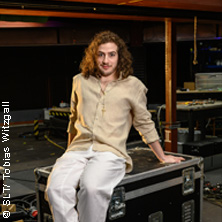 Hallo, ich bin Maya.
Hallo, ich bin Maya.Wie kann ich helfen?
Das Salzburger Landestheater in der Schwarzstraße 22, 5020 Salzburg, ist ein kulturelles Herzstück der Stadt. Das historische Theater, das 1893 von den Architekten Fellner & Helmer erbaut wurde, bietet eine beeindruckende Kulisse für Opern, Theaterstücke und Ballettaufführungen. Mit seiner Kombination aus klassischer Architektur und modernem Spielplan ist das Theater ein wichtiger Bestandteil des kulturellen Lebens in Salzburg.
Das Landestheater hat eine Kapazität von 707 Plätzen und ist auch während des Sommers eine der Spielstätten der Salzburger Festspiele. Neben Eigenproduktionen finden hier regelmäßig Gastspiele und Aufführungen des Mozarteum Orchesters Salzburg statt. Die thematische Ausrichtung der Saison 2024/2025 betont das Spannungsfeld zwischen Abenteuer und Verantwortung und bietet ein breites Spektrum von Oper bis zu zeitgenössischem Theater.
Das Theater ist barrierefrei und bietet spezielle Plätze für Rollstuhlfahrer sowie eine Induktionsschleife für Besucher mit Hörbeeinträchtigungen. Es liegt zentral und ist leicht mit öffentlichen Verkehrsmitteln erreichbar. Für Autofahrer gibt es nahegelegene Parkmöglichkeiten.
